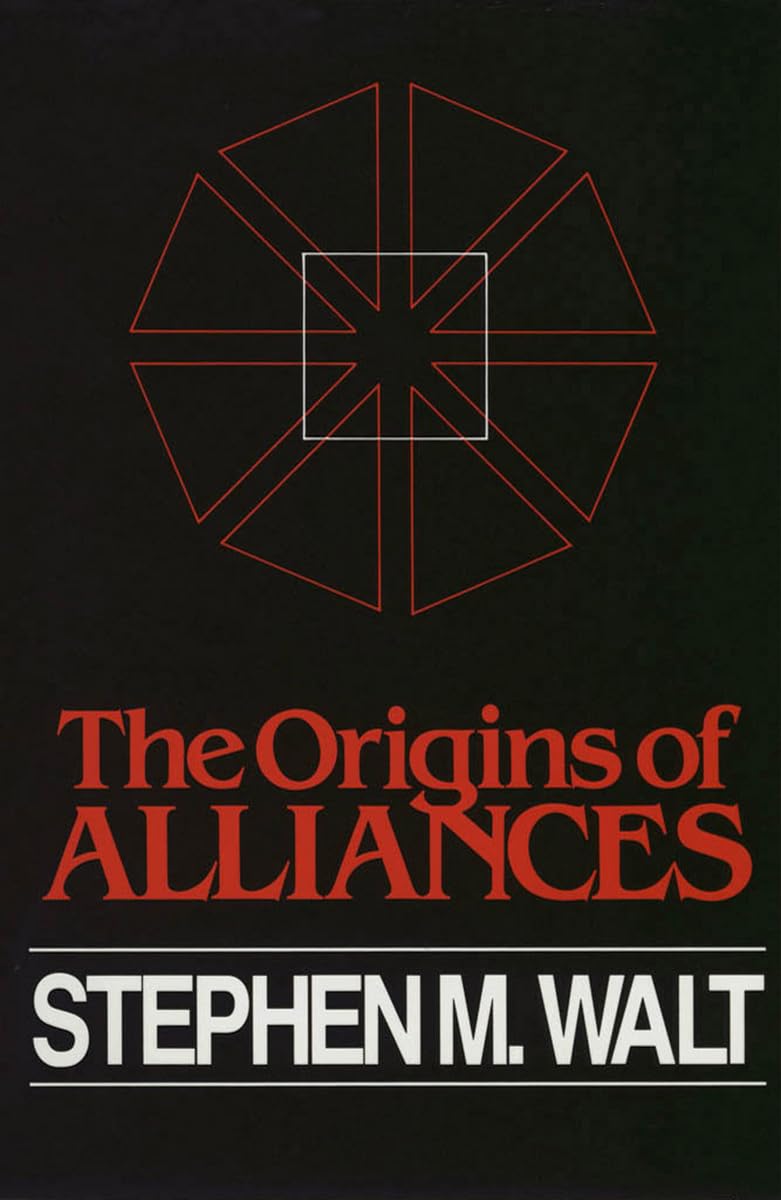
Title

The Origins of Alliances (Cornell Studies in Security Affairs),Used
Delivery time: 8-12 business days (International)
The Origins of Alliances offers a different way of thinking about our security and thus about our diplomacy. It ought to be read by anyone with a serious interest in understanding why our foreign policy is so often selfdefeating.'New RepublicHow are alliances made? In this book, Stephen M. Walt makes a significant contribution to this topic, surveying theories of the origins of international alliances and identifying the most important causes of security cooperation between states. In addition, he proposes a fundamental change in the present conceptions of alliance systems. Contrary to traditional balanceofpower theories, Walt shows that states form alliances not simply to balance power but in order to balance threats.Walt begins by outlining five general hypotheses about the causes of alliances. Drawing upon diplomatic history and a detailed study of alliance formation in the Middle East between 1955 and 1979, he demonstrates that states are more likely to join together against threats than they are to ally themselves with threatening powers. Walt also examines the impact of ideology on alliance preferences and the role of foreign aid and transnational penetration. His analysis show, however, that these motives for alignment are relatively less important. In his conclusion, he examines the implications of 'balance of threat' for U.S. foreign policy.
By changing our most important processes and
products, we have already made a big leap forward. This ranges from the
increased use of more sustainable fibers to the use of more
environmentally friendly printing processes to the development of
efficient waste management in our value chain.
⚠️ WARNING (California Proposition 65):
This product may contain chemicals known to the State of California to cause cancer, birth defects, or other reproductive harm.
For more information, please visit www.P65Warnings.ca.gov.
Shipping & Returns
Shipping
We ship your order within 2–3 business days for USA deliveries and 5–8 business days for international shipments. Once your package has been dispatched from our warehouse, you'll receive an email confirmation with a tracking number, allowing you to track the status of your delivery.
Returns
To facilitate a smooth return process, a Return Authorization (RA) Number is required for all returns. Returns without a valid RA number will be declined and may incur additional fees. You can request an RA number within 15 days of the original delivery date. For more details, please refer to our Return & Refund Policy page.
Shipping & Returns
Shipping
We ship your order within 2–3 business days for USA deliveries and 5–8 business days for international shipments. Once your package has been dispatched from our warehouse, you'll receive an email confirmation with a tracking number, allowing you to track the status of your delivery.
Returns
To facilitate a smooth return process, a Return Authorization (RA) Number is required for all returns. Returns without a valid RA number will be declined and may incur additional fees. You can request an RA number within 15 days of the original delivery date. For more details, please refer to our Return & Refund Policy page.
Warranty
We provide a 2-year limited warranty, from the date of purchase for all our products.
If you believe you have received a defective product, or are experiencing any problems with your product, please contact us.
This warranty strictly does not cover damages that arose from negligence, misuse, wear and tear, or not in accordance with product instructions (dropping the product, etc.).
Warranty
We provide a 2-year limited warranty, from the date of purchase for all our products.
If you believe you have received a defective product, or are experiencing any problems with your product, please contact us.
This warranty strictly does not cover damages that arose from negligence, misuse, wear and tear, or not in accordance with product instructions (dropping the product, etc.).
Secure Payment
Your payment information is processed securely. We do not store credit card details nor have access to your credit card information.
We accept payments with :
Visa, MasterCard, American Express, Paypal, Shopify Payments, Shop Pay and more.
Secure Payment
Your payment information is processed securely. We do not store credit card details nor have access to your credit card information.
We accept payments with :
Visa, MasterCard, American Express, Paypal, Shopify Payments, Shop Pay and more.
Related Products
You may also like
Frequently Asked Questions
- Q: What is the main focus of 'The Origins of Alliances'? A: The book explores the theories behind the formation of international alliances, emphasizing that states often ally to balance threats rather than just power.
- Q: Who is the author of this book? A: The author is Stephen M. Walt, a prominent scholar in international relations.
- Q: What is the publication date of 'The Origins of Alliances'? A: The book was published on September 11, 1990.
- Q: How many pages does the book contain? A: The book has a total of 336 pages.
- Q: What edition of the book is available? A: This is the new edition of 'The Origins of Alliances'.
- Q: What type of binding does this book have? A: The book is available in paperback binding.
- Q: What category does this book fall under? A: The book is categorized under Middle East studies.
- Q: Is this book in new condition? A: Yes, 'The Origins of Alliances' is in new condition.
- Q: What are the key hypotheses discussed in the book? A: Walt outlines five general hypotheses regarding the causes of alliances, focusing on how states respond to perceived threats.
- Q: Does the book discuss the impact of ideology on alliances? A: Yes, the book examines the influence of ideology on alliance preferences among states.
